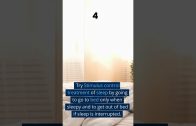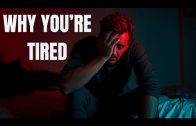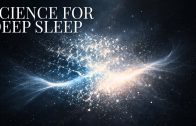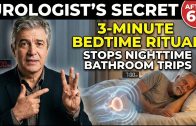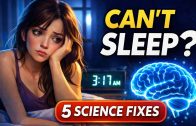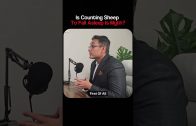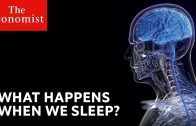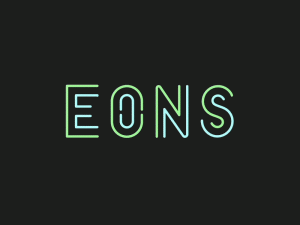How to treat Sleeplessness? #sleep; #insomniarelief; #sleeptreatment; #naturalsleepaid
Full video Link: https://youtu.be/yV9kcIMQ-tQ
Insomnia is a sleep disorder characterized by difficulty falling or staying asleep, or waking up too early and being unable to fall back asleep. There are several approaches to treating insomnia, including non-medical and medical treatments.
Non-medical treatments for insomnia may include:
Cognitive Behavioral Therapy (CBT): CBT is a type of therapy that can help individuals identify and change negative thought patterns and behaviors that may be contributing to their insomnia.
Sleep hygiene: This includes practicing good sleep habits such as establishing a regular sleep schedule, avoiding caffeine and alcohol before bed, and creating a sleep-conducive environment.
Relaxation techniques: This includes techniques such as meditation, deep breathing, and progressive muscle relaxation, which can help reduce stress and promote relaxation.
Stimulus control therapy: This involves limiting activities in the bedroom to sleep-related activities only, and avoiding activities that may interfere with sleep such as watching TV or using electronic devices.
There are several prescription medications available for the treatment of insomnia. These include:
Benzodiazepines: This class of medications, which includes drugs such as diazepam (Valium) and temazepam (Restoril), are central nervous system depressants that can help with sleep. They work by enhancing the activity of the neurotransmitter GABA, which promotes relaxation and reduces anxiety. However, they can be habit-forming and should only be used for short-term treatment of insomnia.
Non-benzodiazepine hypnotics: This class of medications, which includes drugs such as zolpidem (Ambien) and eszopiclone (Lunesta), work in a similar way to benzodiazepines but have a different chemical structure. They are also used for short-term treatment of insomnia and may have a lower risk of dependence than benzodiazepines.
Melatonin receptor agonists: This class of medications, which includes drugs such as ramelteon (Rozerem) and tasimelteon (Hetlioz), work by binding to melatonin receptors in the brain, which help regulate the sleep-wake cycle. They are typically used for the treatment of insomnia in individuals with circadian rhythm disorders.
Orexin receptor antagonists: This class of medications, which includes drugs such as suvorexant (Belsomra), work by blocking the activity of orexin, a neurotransmitter that promotes wakefulness. They are used for the treatment of insomnia and may have a lower risk of dependence than other medications.
It is important to talk to a healthcare professional about the potential risks and benefits of these medications, as well as any potential side effects or interactions with other medications. These medications should only be used under the supervision of a healthcare professional and for short-term treatment of insomnia.
